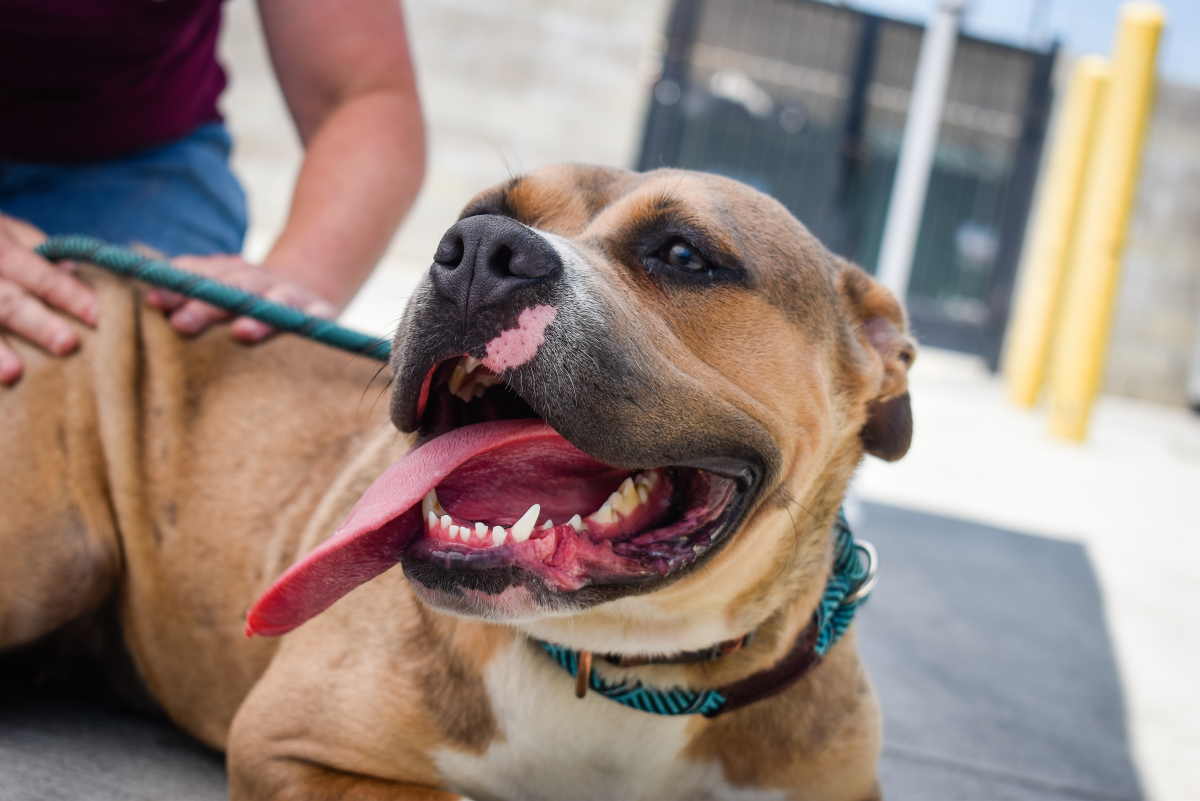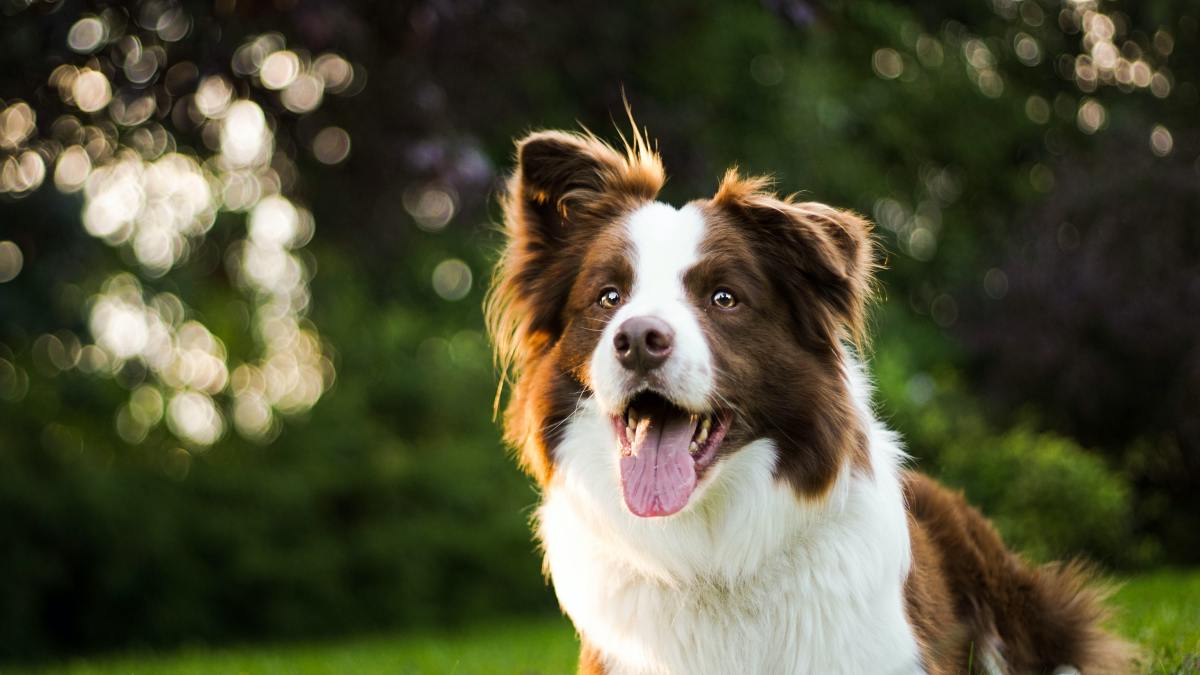Choosing a New Dog: Comprehensive Guide for the Right Family Fit
Which one of these is right for you?
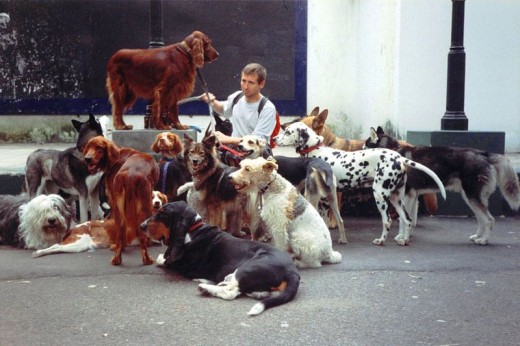
Taking the first step...
So you're getting ready to get a new dog - great! - but if you're a new dog owner or haven't been satisfied with your canine companion in the past, you probably have a lot of questions. There are plenty of resources out there detailing the proper care and feeding of your beloved pet, so we're going to cover something a little more fundamental to the start of your relationship with that four-legged friend: selection.
Think you already have a bad fit for your family? Please don't rehome until you're sure

I have a dog that has been adopted from the local shelter five times before she came to me. Why? Was she a bad dog? Absolutely not! There is no such thing as a bad dog, in my opinion. The reason this particular dog kept getting sent back to the shelter is because the people adopting her didn't have any clue what they wanted in a dog and so ended up with one poorly suited to their lifestyles and needs. There are some key points to consider when selecting your new pet, and a lot of discussion that should take place between you and the dog's current owner/breeder/shelter supervisor.
Remember, this dog has a pretty long lifespan and you need to find one that you will enjoy and will fit your lifestyle so that you both can live the duration of that life to its fullest. Please note that some of these points will be difficult to gauge in a shelter setting and may require an in-home trial before you make a final decision, and that some of these points cannot be gauged in younger puppies.
Other members of the family
I'm not sure if this would be considered the most important point as you search for that new dog, but it certainly is a vital one. Consider the other members of your household including kids, significant others, other pets, even friends that come over all the time. Whoever has handled your dog to this point in its life may be able to provide some answers as to how it responds to other dogs and maybe even how it does with cats, but you can't always get answers on how they do with the two-legged family members.
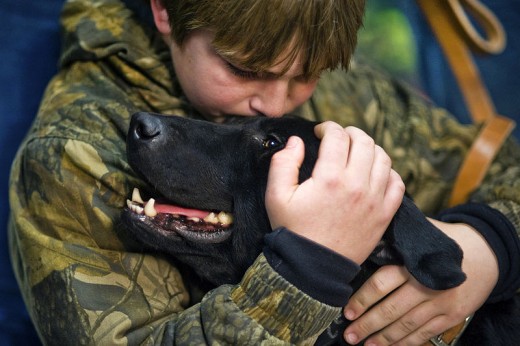
If you have young children, the last thing you want is a shy dog. Dogs that cower when you get near them or startle easily have likely been abused and, at any rate, are quite pensive about human contact. Shy dogs should be written off of your list if you're considering bringing an animal into a home with children aged seven or under (or any age that has not learned how to respectfully handle a pet). Over-exuberant children will be perceived as a threat or can easily startle such an animal, which can result in bites - or worse. Alternatively, if you have smaller children and find a dog that has a ton of energy without sufficient ways to siphon that energy off, your kids may end up with more dog than they can handle even if the animal is just trying to be lovable.
Ask if the dog you're considering has any other people-related issues, you may be surprised at some of the answers you get. For instance, I used to have a Chow Chow that hated men because she'd been abused by several, and my Australian Shepherd will become aggressive with anyone in a uniform (police, mail man, park ranger) so be sure you're well-versed in any known issues.
Can the new dog live with your existing pets?
Compatibility with cats is even more difficult to gauge, and if the shelter supervisor or other person aiding you in acquiring a dog doesn't have any information regarding the dog's interaction with cats, you may just have to find out in an in-home trial. Be sure that your cats are safely separated from the new dog until they have a chance to get the measure of each other, and then only let them together under extremely close supervision and with plenty of places a cat can hide if threatened.
Hounds and terriers are often the least cat-friendly, but just because a prospective dog may be one of these does not mean they should be written off...just watch them very closely. I personally have a Redbone Coonhound that is fully trained for hunting and has acted aggressively toward cats before, but with some guidance he's learned which cats belong in the house and which don't. If you have the time to work with a potentially feline-aggressive dog there's a good chance he can find his niche in your home.
Did you know?
Most dogs end up in shelters between 1 and 2 years of age. Primarily, this is because it's the age at which the lack of training in puppyhood becomes most apparent and destructive. It's also the dog's "adolescent years," when it will feel out and push its boundaries before settling into its role in the household, and the age where a bad fit will become most apparent.
Lifestyle
Next, what kind of lifestyle do you have? Are you an active person who loves to go jogging every morning? A couch potato? Do you work long hours in which a dog will have to be at home alone without any diversion? The answers to these questions will help determine the appropriate energy and dependency level in a dog that will fit you.

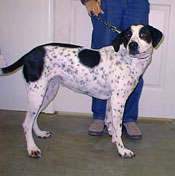
Recall that dog I mentioned that had to endure five adoptions before coming to her forever home? The culprit in every single one of her failed adoptions was a clash of lifestyles - she's a Walker Coonhound/Pit Bull cross who is very sweet, but shy. Her first family had rambunctious boys that treated her a lot rougher than she liked. Another adopter left her on a chain and she never got the exercise she needed. Yet another left her locked in a very small apartment all day while he went to college and work and returned her to the shelter when she started chewing things out of sheer boredom. Remember, if your dog doesn't fit you, neither of you will be very happy.
Dog size and energy level
This part is linked very closely with lifestyle. First, size consideration is key. A lot of people love large dogs, but they do need space to stretch their legs and many require room to run free to burn off that excess energy. Small dogs are rising above all other sizes in popularity, but consideration must be given to the kind of environment it'll be in. Are there kids that can carry him around when he doesn't want to be carried, and that could place him in inappropriate places (dryers come to mind)? Are there large dogs nearby that could harm a small dog? Every size comes with its particular needs and challenges which must be addressed.
Note: This probably isn't your next apartment pup
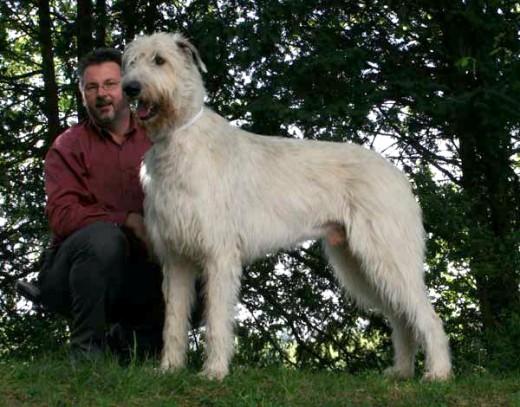
When determining how energetic of a dog you'd like, consider what your own energy level is. Are you someone who likes to get out and do things? Do you sit on the couch in your free time? Maybe you're somewhere in between? This is one of the most difficult factors to determine while in a shelter or other out-of-home setting. A dog will likely be excited to meet someone new and may be barking uproariously in an effort to be noticed. A little bit of familiarity with the dog's predominant breed can be helpful, as well as a short walk with the animal while you're at the shelter or the dog's current home; however, an in-home trial may be the only way to figure out conclusively whether this dog's energy level will mesh with your own.
Want a high-energy dog, but don't have a large fenced yard?

The size of your home is important when deciding both your dog's size and energy level. If you're a very active person but work long hours and have a small house or kennel, a large active dog may not be the animal for you because of all the time he'll have to be sitting at home when you're gone. On the other hand, if you enjoy getting out on a daily basis and want a dog that will look forward to accompanying you on all these outings, an active young or middle-aged dog would be the perfect match. There are so many combinations of lifestyle, home and containment size, and temperament it's impossible to list them all. You'll have to decide for yourself which combination fits you best.
Here are a few breeds to consider for your next "lazy dog"
Trainability in a new dog
You've undoubtedly heard the phrase "You can't teach old dogs new tricks." This simply isn't true. What is true is that older dogs have often lost the eagerness to please they had in their youth, and so are less inclined to pay attention and learn how to do what you ask of them. An older dog can still be taught simple commands fairly easily. If you don't have a lot of time or patience for training a household pet, an older dog may be the perfect animal for you to adopt because most are already housetrained and know basic commands. However, maybe you're looking for an animal you can teach a little bit more or are acquiring a young animal and starting from square one, how do you know if you're getting one that will respond to your efforts?
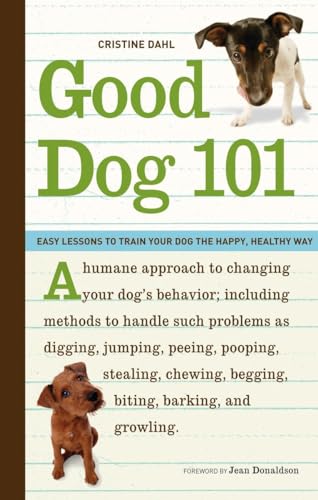
All of the previous factors regarding activity level and personality come into play when deciding if a dog is "trainable" enough for you, as well as what you'd like to train them for. Regardless of what they're being trained for, you need a dog that pays attention to you and that appears eager to do what you want. Praise is an excellent way to achieve this; I've learned that treats should be used sparingly, and personally only give them to my dogs after they've completed a satisfactory training exercise. Keep your own training style in mind here as well - if you have a harsh voice or limited patience, a shy dog is not the one to get. The younger and more energetic the dog, the harder it will be to keep his attention.
If you can not find a way to get a dog to pay attention to you during an in-home trial, you will probably have a very difficult time training him for what you want. Basic housebreaking is still fairly simple, but other very useful things such as coming when he is called may not be achieved so easily. Don't expect him to hang on your every word from the start, but if daily work doesn't show any improvement in his attentiveness, after a week you may have to change your attention-getting tactics or admit that this dog is not at your level of training expertise.
Personally, I believe there is no such thing as an untrainable dog. I've rehabilitated all manner of abused animals as well as trained obedience, showmanship and agility champions out of the most unlikely of prospects. However, there are dogs that may not be able to be trained by you. You have to bear in mind how much you know right now about training and how much you're willing to learn, as well as how much time you're willing to invest in that training, when making your final selection.
Suggested dog breeds for your new pet
While every dog is different, there are some breed characteristics that hold fairly true for a wide range of specimens. When researching possible animals, this is likely all you have to go on before meeting individuals. Personally, I'm a sucker for the "All-American Dog", or mutt. A mutt may not win any shows or be quite as conventionally pretty as a purebred, but they are known to have better immune systems and most have a pretty balanced temperament. Many breeds have breed-specific recessive disorders caused by selectively breeding animals for their traits, resulting in a limited gene pool and increasing instances of undesirable recessive traits. However, considering specific breed traits can be helpful even with mutts as a dog's predominant breed may be indicative of its energy and temper.
Want a couch potato dog?

Retrievers are among the most popular family pets, especially the renowned Labrador Retriever. This group of dogs ranges from medium to extra large and are characteristically in the middle of the track - they're level-headed animals that love to get out and run or hike with you, but are also content to curl up on the couch to watch movies.
I don't know of many truly inactive dogs, but there are a few that are a little easier to keep up with if you don't like to move fast or often. From my own experience, these dogs have included Basset Hounds, Dachsunds, Newfoundlands and Lhasa Apsos. I'm sure there are others out there, but I've never sought out dogs with lower energy levels, so my recommendations there are very limited. Bear in mind that all dogs are different and many of these may be very active, while other dogs of the same breed may not be active at all.
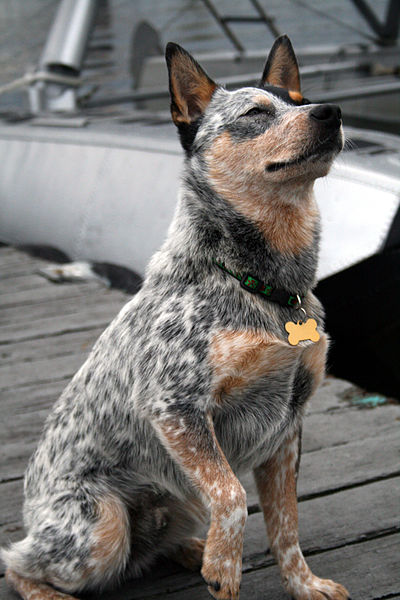
Now to my favorite kind of dog - the "super-active" dogs. These are the dogs that always want to be on the go, love to run, and just plain won't stop once you get them going. This group of dogs includes hounds, terriers, heelers, and smaller shepherds (often German Shepherds qualify closer to the "mid-range" of activity levels) as well as others. I have a particular soft spot for hounds. Dogs in this group are very intelligent animals, but can be quite challenging to train because of their hyper and inquisitive personalities. "Super-active" dogs are certainly not for everyone, but in my experience can be some of the most rewarding if you have the time and skill to train them and have room for them to run.
To conclude the subject of your new dog...
Overall, what determines a "good" or "bad" dog is your own personality, lifestyle, and the environment you can provide for the dog to live in. There are many things to consider but take my word for it, they're worth taking the time to think over before jumping in and adopting that new dog. If you take the necessary steps to ensure a good match between you and your new canine companion you can truly have "man's best friend".
- The Cost of Ownership: What You Owe to Your Pet
Having worked with animals most of my life I'm constantly surprised at how easily many people enter into a big commitment...specifically, adopting a new pet. Thinking back I can remember many summer days... - Acquiring Dogs: Adopt or Purchase?
Should you adopt or purchase your next dog? Here are some things to consider when trying to decide between rescuing a dog from a shelter or purchasing a dog from a breeder. In addition, there are some things you can do to make sure that your purchase - Solutions to Unwanted Dogs in Shelters
Millions of dogs are euthanized in shelters every year. With a little better education and understanding, that number could easily drop. - Hybrid Dog Breeds: Facts You Should Know
Facts on hybrid dog breeds or designer dog breeds. Designer dogs are the source of much controversy, but what are they? What should you know before buying a hybrid puppy?


